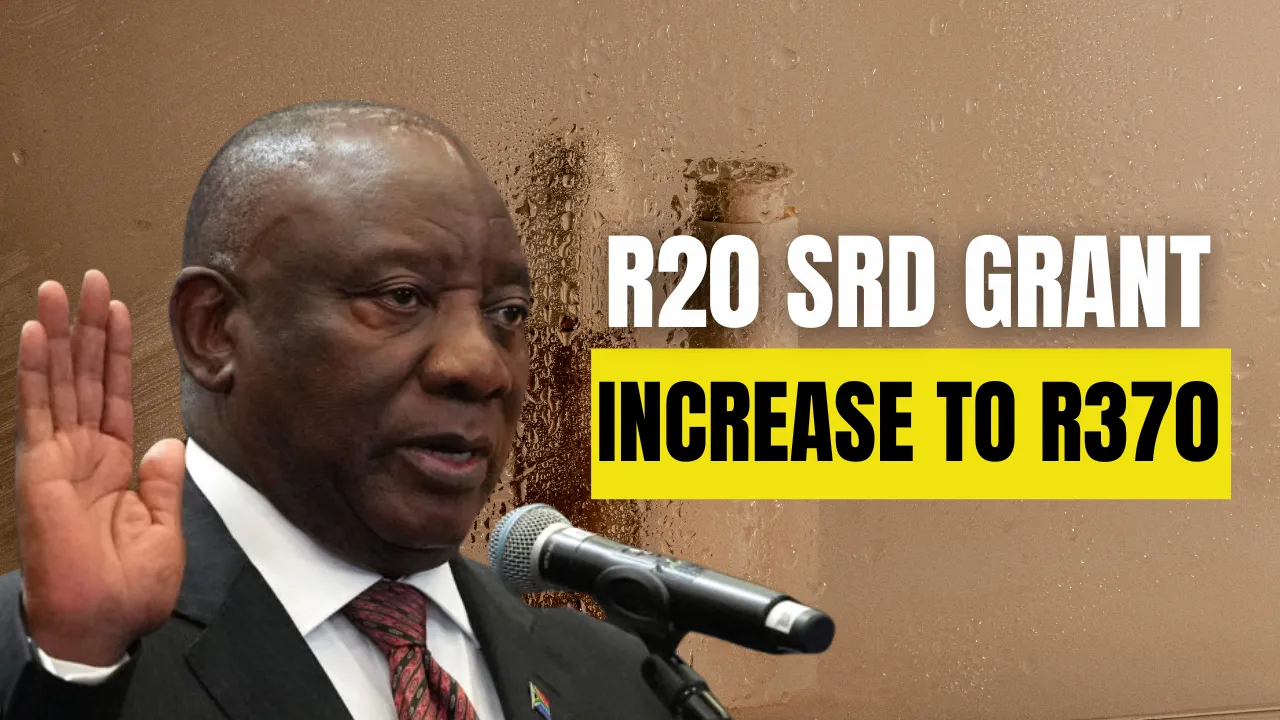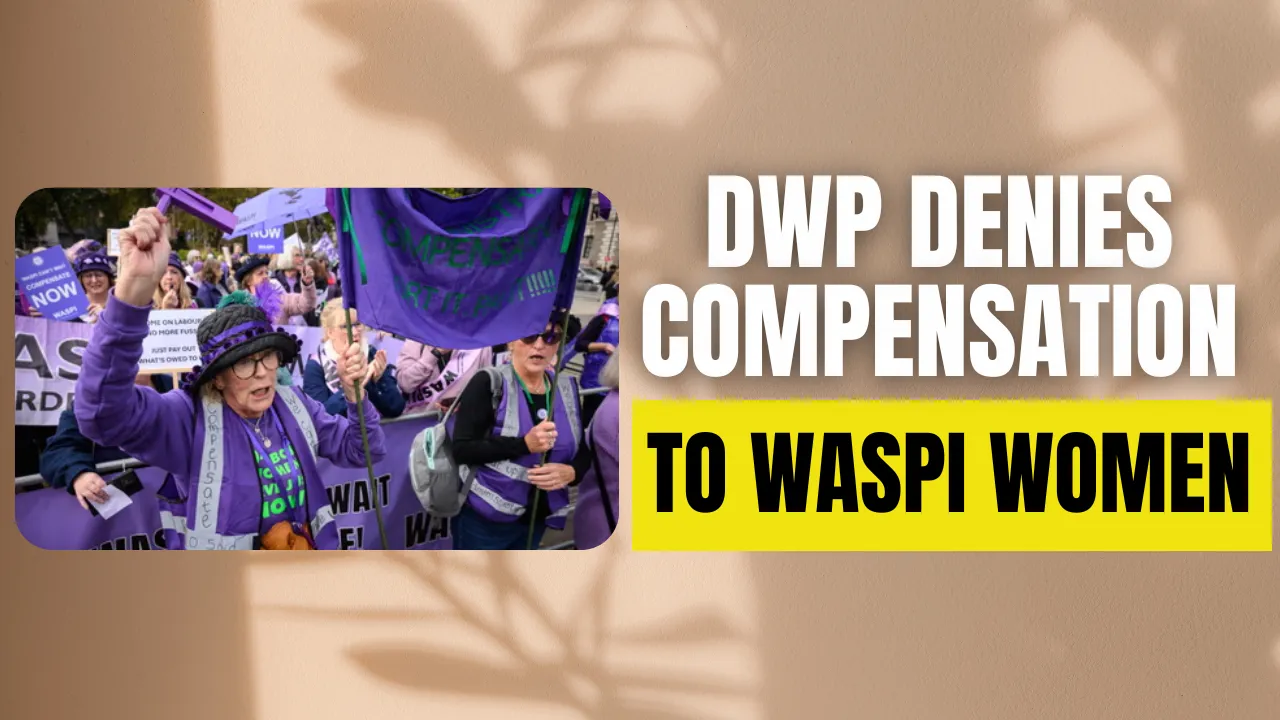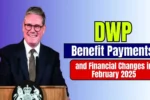R20 SRD Grant Increase: The R20 SRD grant increase, which raised the Social Relief of Distress (SRD) grant from R350 to R370 in April 2025, has sparked significant criticism. For millions of South Africans, this grant serves as a vital financial lifeline. Yet, many argue that the modest increase does little to address the ongoing challenges of inflation and the soaring cost of living. Advocacy groups have even taken the matter to court, demanding a more substantial rise to meet the basic needs of the country’s most vulnerable citizens.
This article examines the history of the SRD grant, its critical role, the controversy surrounding the recent increase, and the potential outcomes of the ongoing legal battle.
Overview of the R20 SRD Grant Increase
| Aspect | Details |
| Grant Amount | Increased to R370 (from R350) in April 2025 |
| Eligibility | Individuals with a monthly income below R624 must apply via SASSA online |
| Reason for Controversy | The increase is seen as inadequate to combat inflation and rising costs |
| Legal Challenge | Filed by the Institute for Economic Justice (#PayTheGrants) |
The History and Significance of the SRD Grant
The SRD grant was first introduced in 2020 as a temporary relief measure during the COVID-19 pandemic. Designed to support unemployed and low-income South Africans, it provided R350 per month to help recipients meet their essential needs.
Although the grant was initially intended to be short-term, it has since been extended multiple times due to South Africa’s ongoing economic struggles. High unemployment rates and persistent poverty have made the SRD grant an indispensable tool for millions. However, its limited amount has been a constant point of contention, with many arguing that it falls far short of what is needed to survive in today’s economy.
Inflation and the Rising Cost of Living
The R20 SRD grant increase has been introduced at a time when inflation is at its highest in years. In early 2025, South Africa’s inflation rate reached 7%, drastically raising the prices of essential goods and services. For households already struggling, this has further eroded their purchasing power.
Monthly Expenses Breakdown
| Expense Category | Average Cost |
| Basic Food Items | R1,335 |
| Utilities (Electricity, Water) | R200 |
| Transportation | R150 |
| Essential Toiletries | R70 |
| Total | R1,755 |
The new SRD grant of R370 covers just a small fraction of these monthly expenses. Recipients are forced to make tough choices, such as skipping meals or cutting back on transportation, just to get by.
Why Beneficiaries and Advocates Are Pushing for More
The R20 SRD grant increase has been met with fierce criticism, with advocacy groups and beneficiaries arguing that it is far from adequate. Two prominent organizations, the Institute for Economic Justice (IEJ) and the #PayTheGrants campaign, have taken the issue to court, demanding immediate changes.
What Advocates Want
- A Substantial Increase in the Grant Amount
Advocacy groups are calling for the SRD grant to be increased to R624 per month, which is the minimum threshold needed to cover basic living costs. - Revised Eligibility Criteria
Current eligibility requires recipients to have a monthly income below R624. Advocates argue that this excludes many low-income families who fall just above this limit but still cannot meet their daily needs. - Improved Access to Applications
The requirement to apply online has been a significant barrier for many South Africans who lack internet access or digital literacy. Advocacy groups are demanding more inclusive application methods.
Constitutional Concerns
Advocates argue that the current SRD grant violates South Africa’s constitution, which guarantees the right to social assistance for those who cannot support themselves. The current amount, they claim, is insufficient to ensure a dignified life for recipients.
The Government’s Position
The South African government has defended the modest increase, citing financial and economic constraints. Officials argue that while the increase may seem small, it reflects a careful balance between providing immediate support and ensuring fiscal stability.
Key Government Arguments
- Budgetary Constraints
Social grants already cost the government R2.5 billion per month. Officials caution that further increases could place an unsustainable burden on public finances. - Economic Growth Priorities
The government emphasizes the importance of fostering economic growth to create jobs and reduce long-term dependency on grants.
While the government acknowledges the importance of social support, it argues that excessive increases could lead to financial instability, which would ultimately harm the economy and its citizens.
Potential Outcomes of the Legal Challenge
The ongoing legal battle could result in significant changes to the SRD grant system, depending on the court’s ruling.
Possible Scenarios
- Grant Increase Approved
If the court sides with advocacy groups, the grant amount could be raised to R624 or more, providing much-needed relief to beneficiaries. - Eligibility Criteria Expanded
A ruling in favor of the plaintiffs might also lead to broader eligibility, allowing more South Africans to access the grant. - Challenge Dismissed
If the court dismisses the case, the grant will remain at R370, forcing advocates to explore alternative strategies to address poverty.
The Voices of Beneficiaries
For those relying on the SRD grant, the modest R20 increase has been a source of frustration. Many beneficiaries feel that the government is out of touch with the realities of poverty in South Africa.
One recipient expressed their concerns:
“The R20 increase doesn’t help much. It’s not even enough to buy a loaf of bread each week. We need real support, not symbolic gestures.”
Such personal accounts highlight the urgent need for reforms that truly address the challenges faced by the country’s most vulnerable citizens.
Proposed Solutions to Strengthen Social Welfare
To address the inadequacies of the SRD grant, experts and advocates have suggested several alternatives:
- Increase the Grant Amount
Raising the SRD grant to at least R624 would align it with the minimum cost of living and provide more meaningful support. - Expand Job Creation Programs
Focusing on job creation would help reduce dependency on grants by providing sustainable income opportunities. - Reallocate Budget Priorities
Redirecting funds from less critical sectors to social welfare could help address the financial constraints limiting the SRD grant’s growth. - Improve Application Systems
Introducing offline application methods and ensuring accessibility for all would make it easier for eligible individuals to receive support.
FAQs
1. What is the SRD grant?
The SRD grant is a temporary financial relief program for unemployed and low-income South Africans.
2. Why is the R20 increase controversial?
Critics argue that the modest increase is insufficient to address inflation and rising living costs.
3. What is the current SRD grant amount?
As of April 2025, the SRD grant has been increased to R370.
4. Who qualifies for the SRD grant?
South Africans with a monthly income below R624 are eligible, provided they apply through SASSA’s online platform.
5. What are advocacy groups demanding?
They are calling for a higher grant amount, expanded eligibility criteria, and improved application access.
Final Thoughts
The R20 SRD grant increase has reignited conversations about social welfare in South Africa. While the government defends the increment as a realistic step within fiscal constraints, critics argue that it fails to address the urgent needs of millions living in poverty.
The outcome of the ongoing legal challenge could set a precedent for the future of social assistance policies in the country. For beneficiaries, it is more than just a legal issue—it’s a fight for survival and dignity. Share your thoughts on the matter and join the conversation about how South Africa can create a more equitable future.






